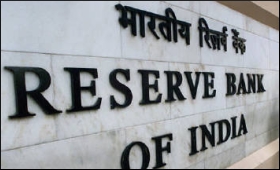|
|
|

|
'Time for fiscal policy to complement monetary easing'
|
|

|
|
| Top Stories |
 |
|
|
|
SME Times News Bureau | 04 May, 2020
As the coronavirus pandemic has brought the global economy to a
standstill, governments across the world, including India, should come
up with massive fiscal stimuli, according to Navneet Munot, Chief
Investment Officer (CIO) at SBI Funds Management Private Ltd.
In a note on the market outlook, Munot said that the easy global liquidity will not last forever.
The
current recession will ensure unprecedented monetary accommodation over
the next several quarters, but monetary policy is reaching its limits
in effectively reviving the economy globally and is leading to rising
wealth inequality as an unwelcome side effect, he said.
"To top
it all, the current crisis has hit the bottom strata the most. The stage
therefore is set for massive fiscal stimuli globally to complement the
monetary effort," he said in the note. It could set the stage for an end
of the 40-year-old bull market in bonds, he said.
"When
inflation perks up and global rates begin to rise in years to come,
capital may not stay as abundant and become much more discerning. We are
a country deficient in risk capital and must therefore act quickly and
decisively."
The statement further said that while the government
is addressing the first order impact on the poor, a lot more needs to
be done to help businesses and avoid second order impacts and social
agenda needs resources that can only be generated by reviving growth and
expanding the pie.
Compared to most countries, he observed that India has been high on stringency of the lockdown and low on fiscal support.
"While
our fiscal room may be limited, we must be cautious of the 'paradox of
thrift'. Given the environment, both corporate sector and households may
remain thrifty and risk-averse, the onus is on government to lever up
and spend," said the statement.
With tax collections expected to
fall, non-tax sources will have to be explored ranging from asset
monetisation to perhaps government backed municipal bonds -- 'Pandemic
bonds' just like 'War bond'.
Munot said that while direct support
to poor was critical during the lockdown, as the economy opens fiscal
multiplier should be the driving force in prioritising expenditure.
Infrastructure projects such as rural roads, urban infrastructure, slum
redevelopment, and the likes should be prioritised to create immediate
employment and support consumption as well as build productive assets.
"Fortunately,
rural economy is in decent shape and must be shielded from supply chain
disruptions as well as from the virus that returning migrant workers
may bring along," he said.
He added that the Reserve Bank of
India on its part has been aggressive in policy response so far and is
doing an even better job at communicating that it stands ready to do
whatever it takes to revive the economy.
However, Munot said that
it has only met with partial success in achieving the desired outcomes
and the big disconnect between macro and micro level liquidity stays.
"The
yield curve has continued to steepen, and corporate spreads stay
elevated. Muted growth and high nominal rates can lead to debt ratios
spiraling out of control. The tepid response to TLTRO 2.0 suggests lack
of risk appetite and therefore the real economy stays starved for
funds,a he said.
Government providing first loss guarantee,
further relaxation in prudential norms, and RBI capping absorption
through the reverse repo window along with aggressive OMOs are some
measures that should help transmission, he added.
|
|
|
| |
|
|
|
|
|
|
|
|
|
|
|
|
|
|
| |
| Customs Exchange Rates |
| Currency |
Import |
Export |
US Dollar
|
₹91.35
|
89.65 |
UK Pound
|
₹125.3
|
₹121.3 |
Euro
|
₹108.5
|
₹104.85 |
| Japanese
Yen |
₹58.65 |
₹56.8 |
| As on 19 Feb, 2026 |
|
|
| Daily Poll |
 |
 |
| What is your primary "Make or Break" expectation from the Finance Minister this year? |
|
|
|
|
|
| Commented Stories |
 |
|
|
|
|
|
| |
|